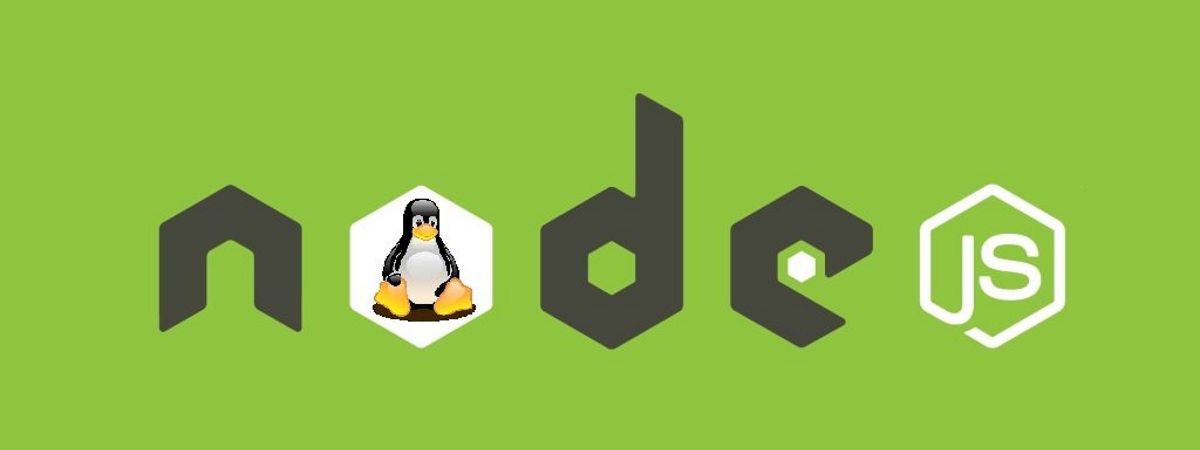
The new version of Node.js 15.0 has already been released and is generally available to everyone. Node.js 15 will replace Node.js 14 as the "current" version, while Node.js 14 will be promoted to LTS at the end of this month. Node.js 14 will receive LTS status and will be supported until April 2023. Maintaining the previous LTS branch of Node.js 12.0 will last until April 2022 and the one before the last branch LTS 10.0 until April 2021.
Since this is an odd version number, Node.js 15 will not be promoted to LTS. Therefore, this should be taken into account, as the project under the auspices of the OpenJS Foundation generally recommends the use of an LTS release line for production deployments.
For those who are unfamiliar with Node.js, you should know that is a platform for network applications in JavaScript.
Recall that the Node.js platform can be used both for web application server maintenance and for creating ordinary client and server network programs.
To extend the functionality of the applications for Node.js, a large collection of modules has been prepared, in which you can find modules with the implementation of HTTP, SMTP, XMPP, DNS, FTP, IMAP, POP3 servers and clients, modules for integration with various web frameworks, WebSocket and Ajax handlers, DBMS connectors (MySQL, PostgreSQL, SQLite, MongoDB), template engines, CSS engines, crypto-algorithm implementations and authorization systems (OAuth), XML parsers.
Main new features of Node.js 15.0
In this new version added an experimental implementation of the AbortController class, which is based on the AbortController web API and allows to cancel signals in selected Promise-based APIs.
La N-API (API to develop plugins) has been updated to version 7, which includes new methods for working with ArrayBuffers.
And motor V8 has been updated to version 8.6Which allows Node.js 15 to implement functions like Promise.any(), AggregateError, String.prototype.replaceAll (), and the Boolean assignment operators "&& =", "|| =", and "?? =".
Transitioned to the new version of the NPM 7.0 package manager, where there is support for Workspaces to combine dependencies of multiple packages into a single package, the automatic installation of peer dependencies, a second version of the lock format (package-lock.json v2) and yarn.lock lock file support.
The unhandledRejection handler is changed to use the default "throw" exceptions instead of the "warn" warnings.
In "throw" mode, in the absence of an explicitly defined handler, unhandledRejection now throw an uncaught exception, but if the controller is configured, the behavior will not change. The "–unhandled-rejections = warn" flag is provided to revert the previous behavior.
Experimental support for the QUIC protocol has been added to the module "Net", which is the basis for HTTP / 3 and is considered as an alternative to TCP + TLS binding for the Web, which solves the problems with long setup and negotiation times of TCP connections and eliminates loss delays of packets during data transfer. To enable QUIC support in Node.js, an assembly is required.
QUIC is a plug-in over UDP that supports multiplexing of multiple connections and provides encryption methods equivalent to TLS / SSL.
How to install Node.JS on Linux?
For those who are interested in being able to install this new version of Node.JS, they should know that the process is quite simple, for this only They have to open a terminal in the system and in it they are going to type one of the following commands, depending on your distro.
In the case of those who are D usersebian, Ubuntu and derivatives, they just have to type the following:
sudo apt-get update
sudo apt-get install nodejs
sudo apt-get install npm
While for those who are users of Arch Linux, Manjaro, Arco Linux or any other derivative of Arch:
sudo pacman -S nodejs npm
OpenSUSE users, just type the following:
sudo zypper ar \
http://download.opensuse.org/repositories/devel:/languages:/nodejs/openSUSE_13.1/ \
Node.js
sudo zypper in nodejs nodejs-devel
Finally for those who use Fedora, RHEL, Centos and derivatives:
sudo dnf -i nodejs npm